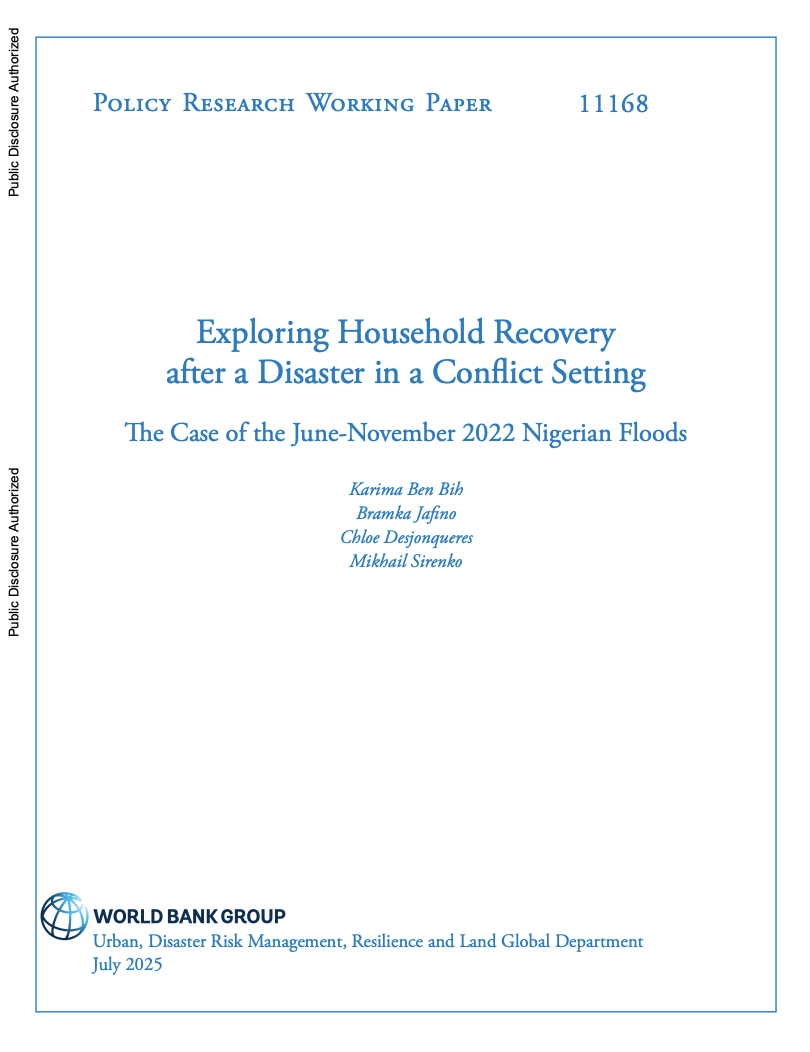This paper examines the compounded effects of conflict on household recovery following disasters, using Nigeria as a case study. The analysis employs the “Unbreakable” microsimulation model to analyze how proximity to conflict influences recovery rates and well-being, measured by consumption losses. Key factors affecting recovery include exposure bias, vulnerability bias, and limited access to resources and social safety nets. Poor households often live in risk-prone areas due to socioeconomic opportunities, making them more vulnerable to disaster impacts. Their livelihoods, typically in sectors like subsistence farming, are easily disrupted, prolonging recovery. Inadequate housing and limited financial access further hinder rebuilding efforts. By integrating conflict data, the paper reveals how violence exacerbates recovery challenges, increasing consumption losses and deepening poverty impacts. The findings highlight the need for targeted resilience policies to address both disaster and conflict-related vulnerabilities, aiming to enhance recovery capacity and minimize welfare losses for the most affected populations.
Exploring Household Recovery after a Disaster in a Conflict Setting
The Case of the June-November 2022 Nigerian Floods
July 8, 2025

